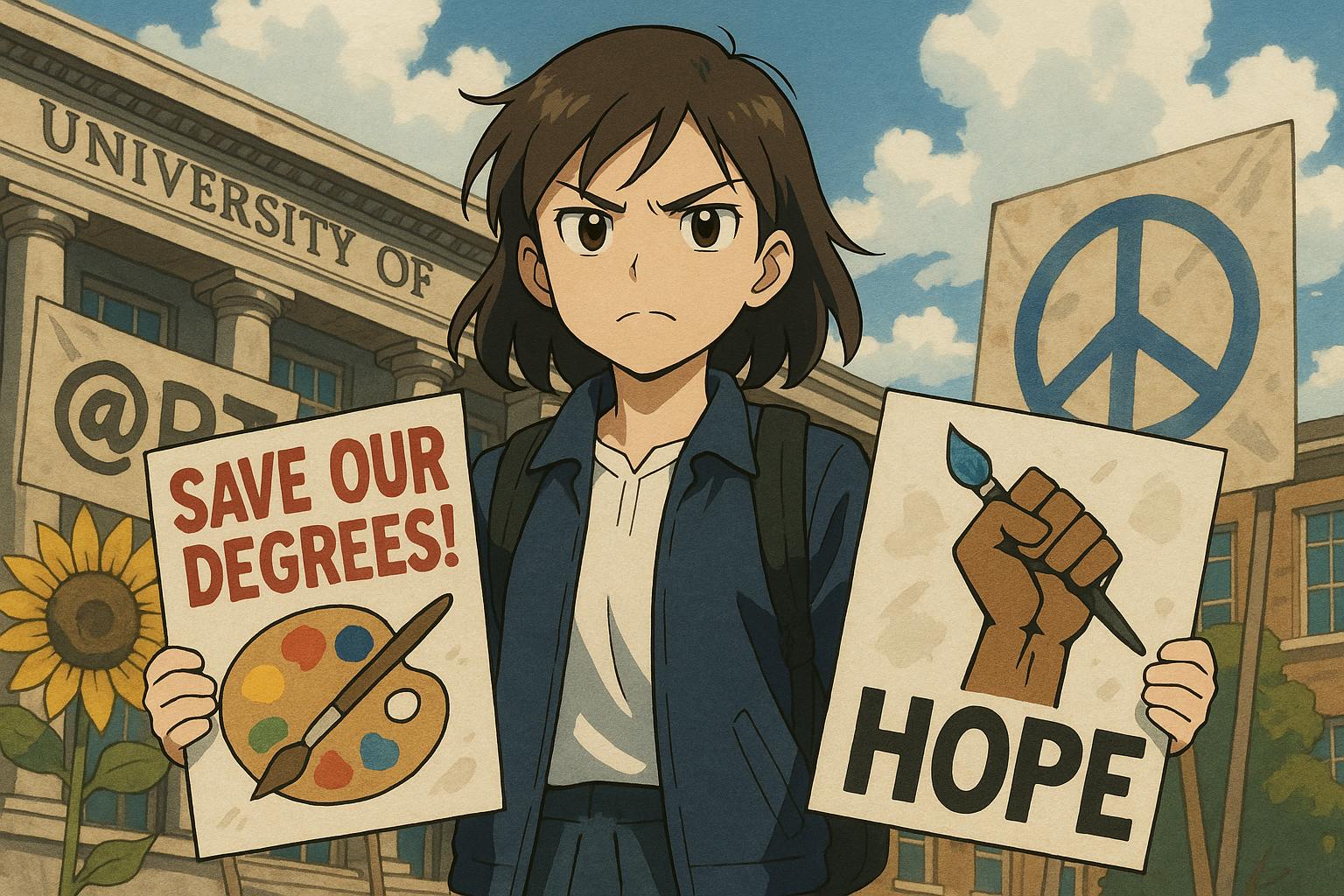Dundee's art community is rising to the challenge posed by the university's alarming financial crisis, orchestrating a poignant protest through the upcoming degree show at Duncan of Jordanstone College of Art and Design. A fine art student, at the forefront of this initiative, is using the show, which runs from May 24 to June 1, as a platform to voice concerns over proposed job cuts that threaten the very fabric of the institution. Originally, over 600 positions were on the chopping block, although an alternative recovery plan has since seen this number revised to about 300 full-time equivalent roles.
As the countdown to the much-anticipated degree show accelerates, students are mobilizing, collaborating with campus unions to create a series of powerful posters that illustrate the distressing circumstances surrounding the university's management of its financial woes. The intent is clear: to articulate the scale of the crisis not merely as a statistic, but as a reality affecting students and staff alike. “The degree show is an opportunity for our year to make a real lasting impact on this university," said the student, emphasising the importance of preserving both jobs and educational quality.
The financial difficulties at Dundee University stem from a complex interplay of factors, including underfunding in UK higher education, reduced international student numbers, and operational inefficiencies. An independent investigation is underway to scrutinise governance practices at the university, particularly focusing on allegations that management may have downplayed the gravity of the situation. Interim leadership has alerted stakeholders to a dire financial outlook, suggesting that without a £22 million government bailout, the institution could face insolvency by June 2025.
The University and College Union (UCU) has expressed alarm over the impending job cuts, characterising them as a ‘hammer-blow’ to the dedicated staff. Concerns about increased workloads and the potential for redundancies are particularly acute among temporary staff members, who are often left vulnerable in such economic downturns. This predicament has been exacerbated by a recruitment freeze and operational cutbacks that, while intended to stabilise finances, have left employees feeling deflated. Critics argue that the university needs a more sustainable approach to financial recovery that prioritises the welfare of its staff and maintains educational standards.
Alongside the student initiative, political figures have begun to weigh in, with local representatives advocating for a reconsideration of the drastic cuts being proposed. Maggie Chapman, North East MSP and rector-elect at Dundee University, praised the student's activism. She articulated the historical bond between art and civic engagement, imploring the university administration to heed the voices of the community and reconsider its current trajectory.
In the broader context of Scotland’s higher education landscape, Dundee’s struggles reflect deeper systemic challenges. The heavy reliance on international tuition fees complicates financial stability in an era marked by tightening immigration policies and fluctuating currency values, both of which negatively impact the university's recruitment abilities. As these dynamics unfold, the call for a cohesive and inclusive approach to governance becomes all the more pressing.
As the degree show draws near, it stands not only as a showcase of artistic talent but also as a crucial moment for dialogue about the future of education at Dundee University. The hope is clear: that through creativity and solidarity, students can inspire meaningful change and safeguard the university for generations to come.
Reference Map:
- Paragraph 1 – [1], [5]
- Paragraph 2 – [1], [2], [3]
- Paragraph 3 – [4], [6]
- Paragraph 4 – [2], [3]
- Paragraph 5 – [1], [6]
Source: Noah Wire Services
